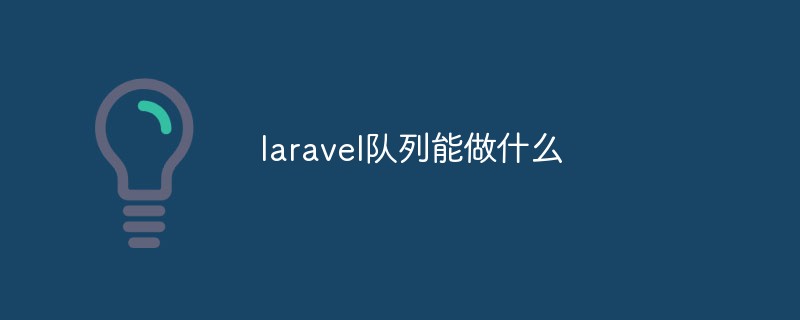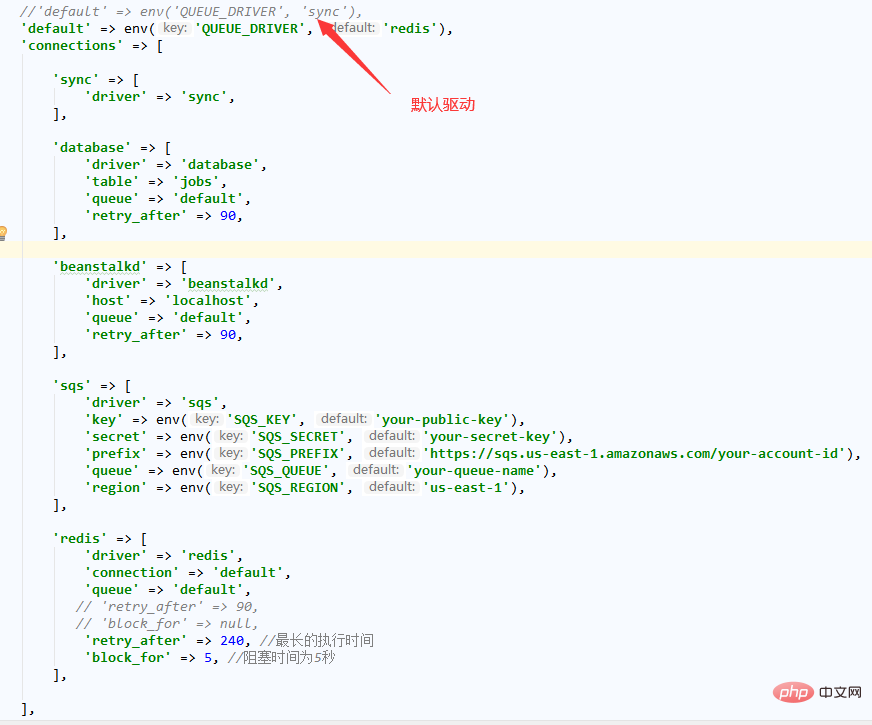
In laravel, the queue can be used to allow deletion operations at the front end of the table and insertion operations at the back end of the table; the queue is a linear table with restricted operations, and the insertion operation is called At the end of the queue, the end of the deletion operation is called the head of the queue. The queue can postpone the processing of time-consuming tasks and improve the response speed of web requests.

#The operating environment of this article: Windows 10 system, Laravel version 9, Dell G3 computer.
The queue is a linear table with restricted operations. The special thing is that it only allows deletion operations at the front end of the table, and delete operations at the back end of the table. Insert operation. The end that performs the insertion operation is called the tail of the queue, and the end that performs the deletion operation is called the head of the queue.
With queues, you can postpone the processing of time-consuming tasks (such as sending emails) until later. Delaying these time-consuming tasks can greatly improve web request response speed.
There are many ways to implement queues. Laravel also supports a variety of queue implementation drivers, such as databases, Redis, Beanstalkd, IronMQ and Amazon SQS. In addition, it also supports synchronous queue implementation (default), and even queue drivers. Set to null to not use the queue. Laravel provides a unified interface for these queue drivers, making it easy for us to switch drivers at will without changing the business logic coding, providing code reusability.
In fact, to put it bluntly, it just stores the key name and key value of the task. Any storage medium can be used, and the so-called queue driver is to take out the task code stored in these media and follow the queue It is just a piece of code that is a deployment method for executing an algorithm.
Advantages
Decoupling: Message queue can decouple the system, improve response speed, system functions are aggregated inward and open to the outside;
Asynchronous: The message queue can strip off the asynchronous functions of the system, reduce functional coupling, and improve development efficiency;
Peak clipping: The message queue can clip peak and current limits to ensure stable operation of downstream consumers;
Configuration
Starting from the configuration file, first we need to configure the default queue driver as Redis in the configuration file. The queue configuration file is config/queue.php.
Connections configuration items: Contains all queue drivers supported by Laravel.
failed configuration item: used to configure the database and data table where failed queue tasks are stored. Here we need to modify it according to our own database configuration.
Description: The first configuration item default in this configuration file is used to specify the default queue driver. It can be changed to other queue drivers we choose (actually modifying QUEUE_DRIVER in .env)
As shown below:

[Related recommendations: laravel video tutorial]
The above is the detailed content of what laravel queue can do. For more information, please follow other related articles on the PHP Chinese website!